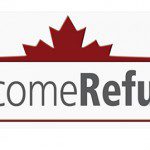Pssst … Try the Back Door to Cyberspace
On the frontiers of human rights and technology, outspoken nerds fight to free the flow of information on the web
In the belly of the red sandstone Munk Centre at the University of Toronto, down two flights of stairs and hallways that twist and turn, computer hacking meets political activism at Citizen Lab. The hum of 20 computers reverberates against the clickety-clacking of fingers on keyboards as Nart Villeneuve, the lab’s director of technical research, opens a virtual world that is not as free as you might think. Hunching in one corner of the basement research facility, Che Guevara mug at his side and Zapatista T-shirt on his back, the 32-year-old displays on his computer monitor the difference between Google searches here and in China: a request for “Falun Gong” on google.com renders over three million pages; its Chinese counterpart fetches under 75,000. Searches for “democracy,” “overthrow” and “freedom” return similar fractured results.
“The Internet is not an open, unrestricted environment,” says Professor Ronald Deibert, known as “hacker prof” around campus. “It’s a network of filters and choke points.” The 42-year-old father of four was interested in “how power is exercised on the Internet,” and wanted to examine web surveillance and filtering on an international scale. So he started Citizen Lab in 2000. Villeneuve, one of Deibert’s former students, caught the prof’s attention with an essay he wrote on censorship in China and Saudi Arabia. Now, with books, 11 major country reports, research projects, and even one U.S. congressional testimony behind them, the two are known as the foremost Net censorship experts in the world.
Here in Canada, the proliferation of the Internet has meant easy access to information. We navigate cyberspace without hindrance. However, in countries that want to repress political discourse and social change, getting around on the Net isn’t as easy. Web content is filtered and blocked, and the open spirit of the web is threatened. “We need, as citizens worldwide, to protect the Net if we want to preserve it as a means for information and space for communication,” says Deibert. His 10 employees and volunteers fight to unlock the Internet.
Amid suspended motherboards and black and white Soviet spy satellite photos at the subterranean hideout, Villeneuve visits a website for SmartFilter, the filtering software libraries use to shield children from provocative sites. Now, nations such as Tunisia – a repressive dictatorship – use the software to block citizens from web content. “First, they start out blocking porn,” says Villeneuve. “Then they make their own categories,” blocking human rights sites, opposition groups and international media.
Filtering is a necessary part of the cyber experience – it keeps spam out and search engines use it to bring us the most relevant results. The problem arises, Villeneuve says, “when the filtering process is not transparent.” Thailand, for example, implemented filtering to deal with sex tourism. The country had an initial list to block of sites that enabled this exploitive practice. “Now, sites not on the list are blocked too,” says Villeneuve. Similarly, blocked sites on the Internet in China look like regular error pages. This secretive filtering and blocking jeopardizes the openness of the Internet, and Villeneuve argues, democracy, free speech and human rights.
Another unintended yet critical outcome of the filtering process, Villeneuve says, is that systems like SmartFilter shut out perfectly acceptable sites. He types teenpregnancy.org in a web address checker that shows how sites on this system are categorized. The site is classified correctly as a health resource. Then he checks an individual page on teenpregnacy.org and it falls into the sex and pornography category. “That’s just dumb-ass,” he says.
One of the lab’s most publicized projects is the OpenNet Initiative (ONI) in partnership with Cambridge,Oxford and Harvard universities. ONI explores and challenges Net censorship practices in about 40 countries by connecting with volunteers and computer servers in the nations in question. Through applications developed in the lab, they run a series of tests on the Internet there. First, they test general categories, then country-specific categories. In the places that ONI monitors, pornography is the most blocked category on the Internet, followed by gambling, anonymizers, provocative attire and humour.
To combat net censorship, Villeneuve, Deibert and others at the lab developed a computer program called Psiphon. Slated for release in December, the program turns home computers in uncensored countries into servers that display websites to people in censored places. So journalists, activists and bloggers in unblocked countries can install Psiphon for free and then create a “network of trust”—friends and counterparts in censored countries—who can log in and check out sites they normally wouldn’t be able to access. Psiphon, he says, is targeted at Chinese- and Iranian-Canadians, or those who are living here with connections in net-censored nations.
Villeneuve is vocal about safe play on the net. “Journalists need to know how to protect themselves online,” he says, “how to communicate securely.” For this, he contributed to the Handbook for Bloggers and Cyber-dissidents by Reporters without Borders. The introduction of the booklet says, “Bloggers are often the only real journalists in countries where the mainstream media is censored or under pressure.” Villeneuve’s section examines circumvention technologies, which allow people to get around net censorship and surveillance, and the advantages and disadvantages of each. According to the handbook, Iran’s filtering systems “block access to hundreds of thousands of websites?. The regime is capable of the worst censorship and also set a record in 2005 by throwing nearly 20 bloggers in prison over the preceding 10 months. Three of them were still there on August 1, 2005.”
A 10-minute walk west of Citizen Lab, at the Tik Talk Cafe, Iranian-born blogger Hossein Derakhshandiscusses the choked-up web in his country. “You can’t really use the Internet,” he says, “except for maybe email.” Like Saudi Arabia, China and Kazakhstan, the Iranian regime blocks and filters the Internet. The 31-year-old Canadian citizen realized this when he returned home and searched for his blog online. He was led to a red and blue page that said the site was forbidden. “It’s really suffocating,” he says.
Derakhshan, a website designer and freelance journalist, began blogging about technology, pop culture and Iran when he moved to Toronto from Tehran six years ago. Before he knew it, his English and Farsi blog posts on Editor: Myself consistently grabbed the attention of over 7,000 daily visitors, along with 12,000 people on his mailing list. Then, with the emergence of Internet filtering back home, where many of Derakhshan’s readers reside, his readership was abruptly cut in half. Despite these limitations, the self-described outsider is credited with igniting the blog movement in Iran with his guide to blogging, published on the site November, 5 2001. Now, there are at least 70,000 active Persian blogs – more than the number of blogs in Spanish, Chinese, Italian, German or Russian. “It’s mainstream there,” he says.
Derakhshan uses three metaphors to describe how blogging changed Iran: windows, bridges and cafés. Blogging facilitated a window effect, inviting outsiders to look in, and vice versa. Bridges connected communities that never communicated, like men reading women’s points of view. And then the café effect: blogs started debate that was otherwise absent in Iran “because of the government’s monopoly on the public sphere,” he says.
The even-tempered agitator acknowledges the pressures on Iranian bloggers, and he says most know the lines they cannot cross. For instance, they can’t insult the Supreme Leader; for this, Derakhshan was detained and questioned by an intelligence ministry official on his last Tehran trip, then banned from leaving the country until he wrote an apology. But the blogger is careful to underscore that the Iranian government isn’t as harsh as westerners may think: he says most of the 20 Iranian bloggers were arrested for other things – they just happened to have blogs.
More than politics, Persians tend to write about their daily experiences. “Because the government wants to control your life as much as it can,” Derakhshan says, “anything you do that challenges that authority is political. Even if it’s not really about politics.” For the star blogger, that’s good enough. He thinks journalism is something people should do on the side, like blogging. With the December release of Psiphon, perhaps we’ll hear more voices rise over state-controlled media and web censorship in the new form of journalism: the blog.
by Julia Belluz
Julia Belluz was the Editor for the Spring 2007 issue of the Ryerson Review of Journalism.















































